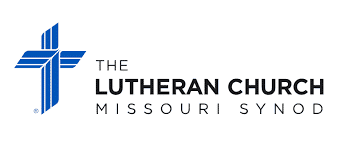#DailyDevotion Jesus Is The Mediator Of A New Covenant
Heb. 9 15And He is the Mediator of a new testament (covenant]. By dying He paid the ransom to free people from the sins under the first covenant, and those who are called are to receive the everlasting inheritance promised them. 16Where there is a will, it must be shown that the one who made it died, 17since a will takes effect only when a person is dead. It is not in force as long as the one who made it is still living. 18That is why the first covenant was also dedicated with blood. 19When Moses had told all the people every commandment of the Law, he took the blood of calves and goats and some water, scarlet wool, and hyssop and sprinkled the scroll and all the people. 20“This is the blood of the covenant,” he said, “that God has ordered you to keep.” 21In the same way he sprinkled blood on the tabernacle and on everything used in the worship. 22According to the Law almost everything is cleansed by blood, and if no blood is poured out, no sins are forgiven.
I guess one could go into ancient distinctions between wills, testaments and covenants. The author would certainly understand the distinctions of his day. Here though, it seems we are going to mush them all together. Maybe there really isn’t a difference. We will follow his lead and do the same.
Jesus is the Mediator of a new testament/will/covenant. If there is a new one, the old one is abrogated. My parents have gone through several wills and all preceding ones, no matter how similar, are now null and void. This means then the covenant the LORD made with Israel on the mountain is now null and void. The whole thing including everything in it no matter how the new testament may have some similarities, particularly in the moral law department. If there are discrepancies, the new one takes precedence because the old one is abrogated.
This new testament was sealed with the death of Jesus and the spilling of His blood. His death paid the ransom/redemption for those who sinned under the first covenant. We may question to whom the ransom/redemption is paid. It would seem to me it is death itself, since death was the price for transgressing the law. The soul that sins must die. Adam sinned and brought death into the world. We who sin follow him in his death. Jesus did not sin. Jesus offered up His life to death and now all who put their trust in Him receive from Him His life. His life is the everlasting inheritance.
This will/testament/covenant was enacted when Jesus shed His blood and died. Wills only take effect once one dies. He reasons the first covenant was enacted with the blood and death of calves and goats with water, scarlet and hyssop being used to sprinkle the scrolls and the people. This sprinkling of the blood purified and dedicated everything it touched. The blood of the sacrifices was poured out and sprinkled on the people to cleanse them and to forgive them their sins. The author will note these sacrifices in themselves did not obtain for them the forgiveness of sins. It only made them ritually pure. However, because of God’s promise, those who believed in His promise could be assured of forgiveness. Jesus’ blood however does cleanse us from our sins. As we shall see later, it dedicates us and the heavenly sanctuary. His blood is the guarantee of the new testament promised in Jer. 31:31ff. With the shedding of His blood, we know our sins are forgiven and forgotten. He sprinkles us with this blood in our baptism, absolution, the Lord’s Supper and the preaching of the Gospel.
Heavenly Father, we thank You for instituting the New Covenant in the blood of Your Son, Jesus. Keep us in this faith unto life everlasting. In Jesus’ name we pray. Amen.


